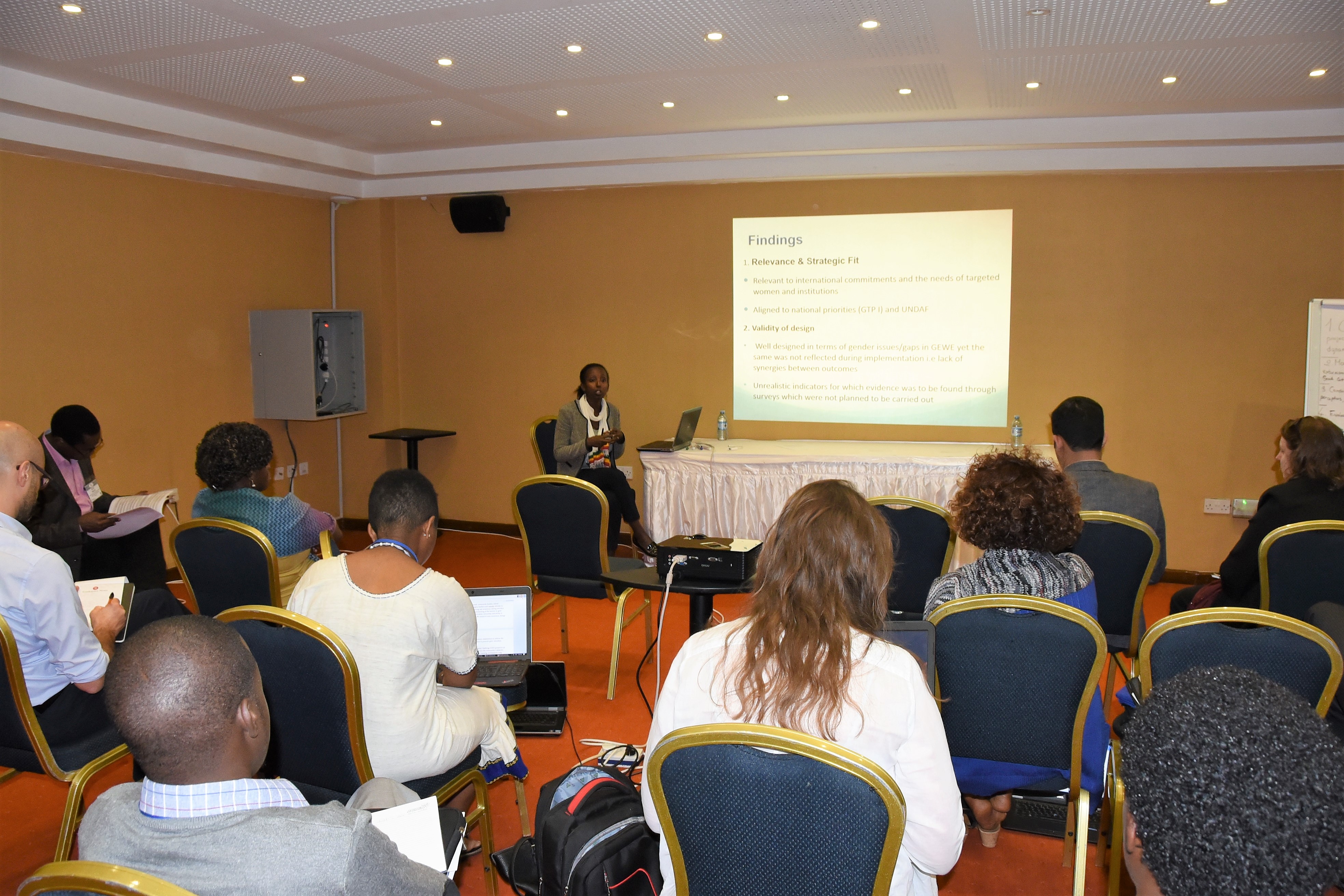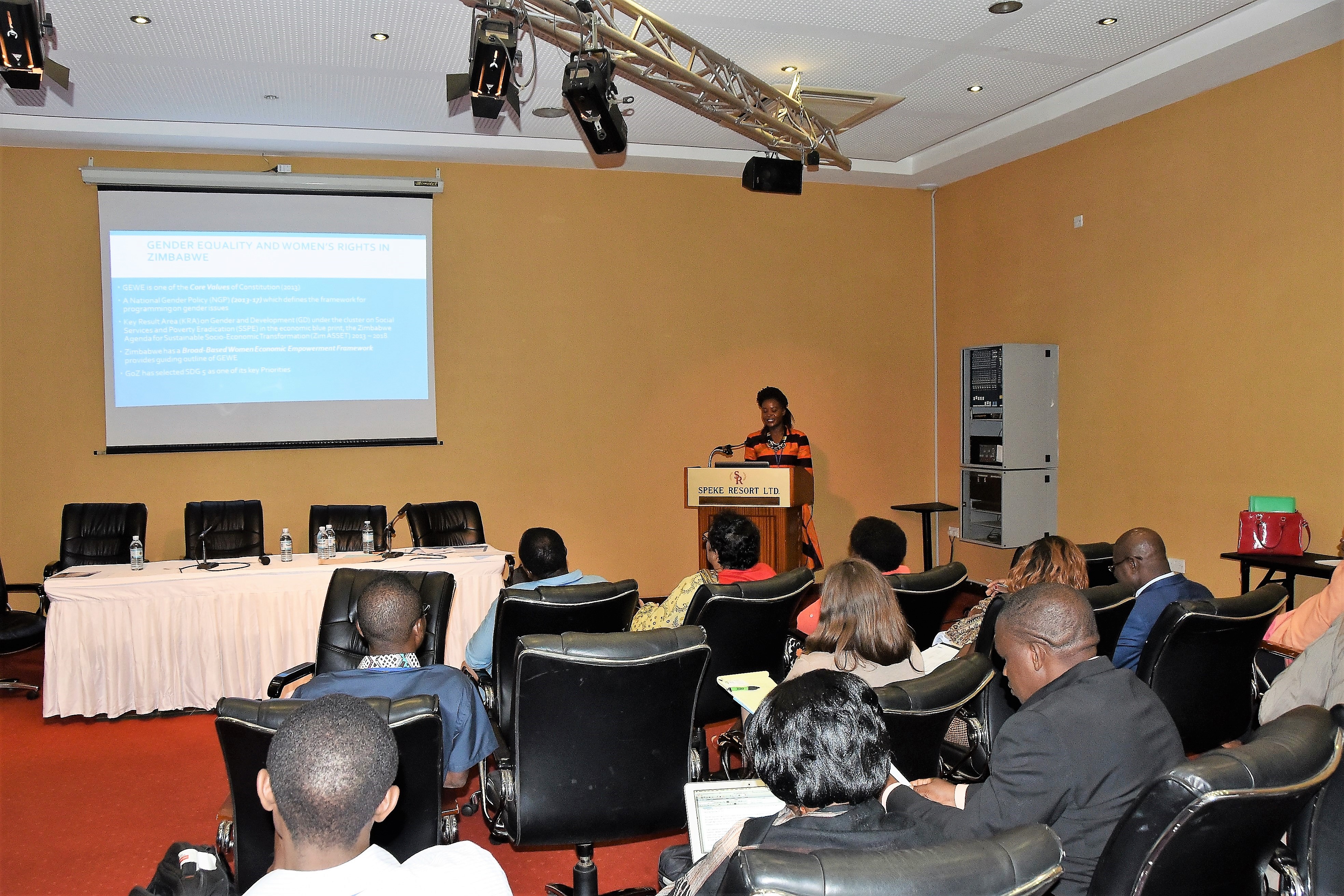Gender Focused Evaluations Vital for SDG Attainment in Africa
Date:
Evaluation is critical for the attainment of the Sustainable Development Goals (SDGs). It is also vital for African countries and development partners to strengthen the evaluation capacity from a gender lens to realize the SDGs. This was the main message during the 8th African Evaluation Conference (AFREA) held in Kampala, Uganda. The African evaluation community will continue to take lead in ensuring that development programming is in sync with the needs of the people and ensure that governments are developing policy frameworks that are influenced by research.

According to Hon. Olfa Olfa Soukri Cheri, a member of parliament in Tunisia, “By carrying out evaluations with a gender lens, we ensure that there is gender and social equity at all levels of society. Evaluations enables policy makers to give same chances and opportunities for people to reach sustainable development goals. But to ensure that public policy is efficient, we must ensure that the SDGS are implemented well and more critical is to ensure that we have the capacity to evaluate the SDGs implementation processes.”
Unlike the Millennium Development Goals (MDGs), the SDGs have an inbuilt evaluation mechanism that ensures all governments have strong evaluation capacity and that they report regularly on all the indicators. “The SDGs represent the biggest opportunity for the global evaluation community, this is because for the first time in history 187 heads of states met together and agreed on the SDGS; and for the SDGS to have follow-up and review mechanism. Because of this, at the 2016 UN General Assembly, 20 countries reported back to the General Assembly on how they are performing against the SDGs. This year, 40 countries have signed up to report on the national reviews for the SDGs.” noted Mr. Marco Segone, Director Independent Evaluation office of UN Women and Chair of the UN Evaluation Group.
Evaluation informs the next step in terms of policy, it helps policy makers make correct policy decisions from an informed development impact position. According to Ms. Salome Anyoti a participant from Tanzania, “Evaluation of SDGs is critical, governments should integrate evaluation into the process to ensure that they do not leave anyone behind. The 17 SDGs should be integrated within the national development plans. To achieve this, governments must then design processes through which all the 17 goals will be captured. Many governments have systems and processes but we must domesticate the goals into the current development plans and with a strong evaluation process.”

According to Ms. Farai Praise Hondonga , who works with the parliament of Zimbabwe, SGD are pertinent for the development of the whole world. She believes that “the SDGs though complex, they will lead to equality and empowerment for all. The theme of leaving no one behind means that we shall have equality and empowerment for all. Leave no one behind means that everyone should be involved, once that participatory approach takes effect, I see a better world for everyone.”
The follow-up and review process for SDGs should include country led evaluations. Already African countries are carrying out a lot of preparatory work. Many have put in place national evaluation policies and are integrating SDGS in those policies through a gender and equity approach.
The 8th AFREA conference played an important role of bringing together various stakeholders and partners including parliamentarians, government and civil society to spur knowledge sharing on evaluations and public policy. UN Women supported the conference by facilitating the participation of the key stakeholders including members of parliament and provision of technical support.
Participants held open conversation on the opportunities and challenges of implementing the SDGs with a gender lens. Examined gender and equity and how to use evaluation to help the learning and accountability to make sure that the county SDGs plans are implemented to benefit everyone.
AFREA supports African evaluators build their capacity to generate quality knowledge for public policy use. By partnering with AFREA, UN Women is helping African countries improve their evaluation capacities from a gender focused lens.